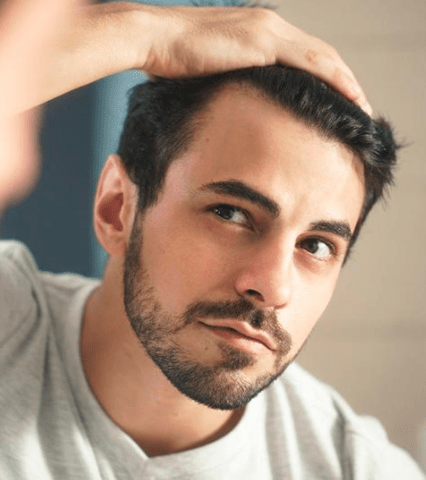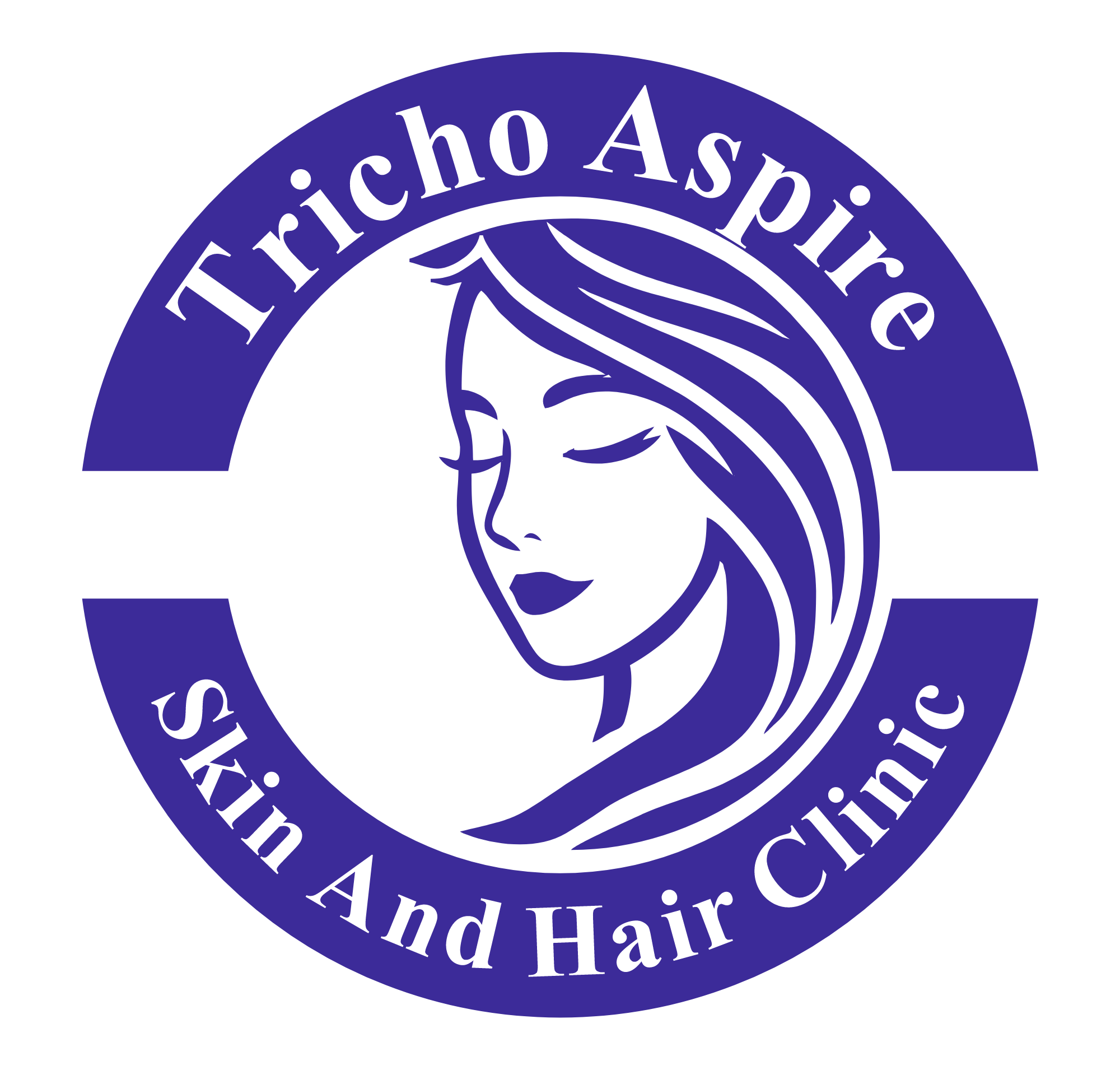
Delving into hair loss statistics reveals a startling truth – the prevalence of hair loss is remarkably high. Surpassing 80% among men and nearly 50% among women, hair loss is a pervasive issue affecting a significant portion of the population. Numerous factors contribute to the onset of hair loss, making it a matter of serious concern.
- Nutritional deficiencies
- Health conditions
- Medications
- Genetics
- Hormonal
- imbalances
- Stress
- Lifestyle
A trichologist, a dedicated expert specializing in hair and scalp well-being, delves deep into the realm of hair loss and scalp concerns. With a meticulous approach, the trichologist is adept at identifying the underlying triggers of these conditions, offering well-suited solutions. In the realm of trichology, the hair and scalp specialist diligently explores the distinct hair loss challenges faced by each patient. This comprehensive analysis takes into account crucial factors such as personal history, genetic predisposition, lifestyle choices, and more. Collaborating closely with the patient’s healthcare provider, the trichologist crafts a tailored treatment strategy, ensuring a personalized path to effectively address their unique hair and scalp needs.
Hair Loss Treatment - Trichoaspire
Hair Loss Conditions
Male Pattern Baldness (Androgenic Alopecia)
Androgenic Alopecia, commonly referred to as male pattern baldness, is responsible for 95% of hair loss in men. This condition is primarily attributed to genetic factors, implying that if baldness runs in your family, you may also be predisposed to it.
Male pattern baldness ensues when the hair growth cycle weakens, resulting in the contraction of hair follicles. Consequently, hair strands become shorter and finer, with new hair failing to grow as the cycle completes.
At Trichoaspire, our team of trichology experts scrutinizes your hair loss to ascertain whether it stems from male pattern baldness or other factors such as nutritional deficiencies or medication usage. Based on their assessment, a customized treatment plan is devised, prioritizing safety and delivering effective outcomes.

Female Pattern Baldness (Androgenetic Alopecia)
Only a minority of women experience female pattern baldness or androgenetic alopecia in their early 30s. Nevertheless, this figure skyrockets by a staggering 125% by the time they reach their 50s.
While female pattern baldness shares similarities with its male counterpart, the balding pattern tends to diverge. Genetics, age, and hormonal fluctuations contribute to this condition, which tends to intensify after menopause when estrogen levels decline. Unlike men, female pattern baldness initiates at the hair’s part line and progresses towards the back, although complete baldness is less probable.
At Trichoaspire, we advocate early consultation with a trichologist at the initial indications of female pattern baldness. This approach ensures prompt implementation of an effective treatment plan, with better outcomes resulting from early intervention.

Telogen Effluvium
Telogen Effluvium is a transient hair loss condition that typically arises following a system-wide “shock.” These triggers can encompass accidents, acute or chronic illnesses, medications like antihypertensives and oral contraceptives, surgeries, stress, endocrine disorders, nutritional deficiencies, and more.
Typically, around 85% of a person’s scalp hair is in the active growth stage, while the remaining 15% rests. However, when the body experiences a significant “shock,” a majority of the actively growing hair transitions into the resting phase. As new hair commences growth, they displace the resting hair, leading to an observable increase in hair shedding.
Thankfully, recuperation is swift, with reduced hair fall and a return to the previous hair thickness within a couple of months. As Telogen Effluvium is self-correcting, the physician may administer corrective treatments to address the underlying issue triggering the condition and to forestall its recurrence.

Alopecia Areata
Alopecia Areata is characterized by the emergence of hair loss in distinct patches. This autoimmune disorder affects both men and women, with variations in the extent of hair loss and patch sizes among individuals. While the exact triggers of alopecia areata remain uncertain, hereditary factors often play a role, along with potential associations with endocrine disorders, vitiligo, asthma, and other conditions.
Effective management of Alopecia Areata is provided by dermatologists. At Trichiaspire, our expert will carefully evaluate your symptoms and conduct relevant tests to ascertain the condition’s nature. Through appropriate therapies and medications, substantial control over the condition can be achieved, facilitating successful hair regrowth.

Scarring Alopecia
Scarring Alopecia, commonly referred to as Cicatricial Alopecia, involves hair loss accompanied by scarring. This condition arises when hair follicles are damaged, leading to the formation of scar tissue and eventual permanent hair loss. In certain instances, symptoms may be absent, resulting in gradual hair loss, while in others, rapid hair loss can be accompanied by intense itching, burning, and even pain. Accurate diagnosis of Cicatricial Alopecia necessitates a comprehensive clinical assessment conducted by a dermatologist. Should signs of inflammation such as redness, scaling, and pustules be evident, further evaluations will be undertaken to determine the required treatment.
At Trichoaspire, our specialists identify the prevailing type of inflammatory cells targeting the hair follicles, enabling the formulation of an appropriate therapy and medication regimen for the condition. Following successful management of symptoms and inflammation, ongoing follow-ups are recommended as Cicatricial Alopecia may experience reactivation following a dormant period. Once the condition remains inactive for up to two years, cosmetic treatments may be suggested by the dermatologist.
Consult Now
📞 Consultation With Our Doctor
Dr. Pratyush More is a board certified Dermatologist and is trained under Dr. Alex Ginzburg from Israel in hair loss treatment & hair transplant.
